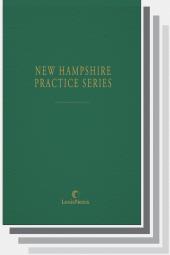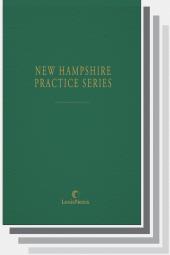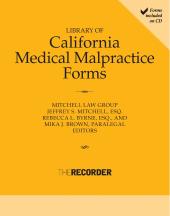The Science Behind the Art of Legal Writing
Select subscription type
Terms & conditions
Subscribers receive the product(s) listed on the Order Form and any Updates made available during the annual subscription period. Shipping and handling fees are not included in the annual price.
Subscribers are advised of the number of Updates that were made to the particular publication the prior year. The number of Updates may vary due to developments in the law and other publishing issues, but subscribers may use this as a rough estimate of future shipments. Subscribers may call Customer Support at 800-833-9844 for additional information.
Subscribers may cancel this subscription by: calling Customer Support at 800-833-9844; emailing customer.support@lexisnexis.com; or returning the invoice marked "CANCEL".
If subscribers cancel within 30 days after the product is ordered or received and return the product at their expense, then they will receive a full credit of the price for the annual subscription.
If subscribers cancel between 31 and 60 days after the invoice date and return the product at their expense, then they will receive a 5/6th credit of the price for the annual subscription. No credit will be given for cancellations more than 60 days after the invoice date. To receive any credit, subscriber must return all product(s) shipped during the year at their expense within the applicable cancellation period listed above.
Subscribers receive the product(s) listed on the Order Form and any Updates made available during the annual subscription period. Shipping and handling fees are not included in the annual price.
Subscribers are advised of the number of Updates that were made to the particular publication the prior year. The number of Updates may vary due to developments in the law and other publishing issues, but subscribers may use this as a rough estimate of future shipments. Subscribers may call Customer Support at 800-833-9844 for additional information.
Subscribers may cancel this subscription by: calling Customer Support at 800-833-9844; emailing customer.support@lexisnexis.com; or returning the invoice marked 'CANCEL'.
If subscribers cancel within 30 days after the product is ordered or received and return the product at their expense, then they will receive a full credit of the price for the annual subscription.
If subscribers cancel between 31 and 60 days after the invoice date and return the product at their expense, then they will receive a 5/6th credit of the price for the annual subscription. No credit will be given for cancellations more than 60 days after the invoice date. To receive any credit, subscriber must return all product(s) shipped during the year at their expense within the applicable cancellation period listed above.
Product description
View a sample of this title using the ReadNow feature
What evidence exists to support the advice that legal writing professors offer their students? For example, do legal readers really prefer short sentences and the active voice? Is outlining the best way to start a memo or brief? Can a certain font type make a brief more persuasive? Is deductive reasoning the most effective form of legal reasoning? Will a legal writer view the use of the word “clearly” with skepticism? Are judges annoyed by minor grammatical errors or typos? These questions and many more are addressed in The Science Behind the Art of Legal Writing.
This text provides easy access to research in the form of social psychological experiments, statistical analyses, and surveys (some done by others and some done by the authors), which suggest that much of the advice given to legal writing students is backed by solid science. As a supplemental text for a first-year legal writing course, or as a primary text for an advanced legal writing course, The Science Behind the Art of Legal Writing provides the evidence—besides saying “because I told you so”—for requiring students to follow many common legal writing conventions.
As the first comprehensive compilation of research addressing legal writing, The Science Behind the Art of Legal Writing provides a much-needed resource to legal writing professionals. The second edition updates the research in the first addition and adds chapters addressing the science of passive voice and the effect of legal training on how students read legal text.
epub is protected by Adobe DRM.
eBooks, CDs, downloadable content, and software purchases are noncancelable, nonrefundable and nonreturnable. Click here for more information about LexisNexis eBooks. The eBook versions of this title may feature links to Lexis+® for further legal research options. A valid subscription to Lexis+® is required to access this content.
 Lexis Nexis
Lexis Nexis 



